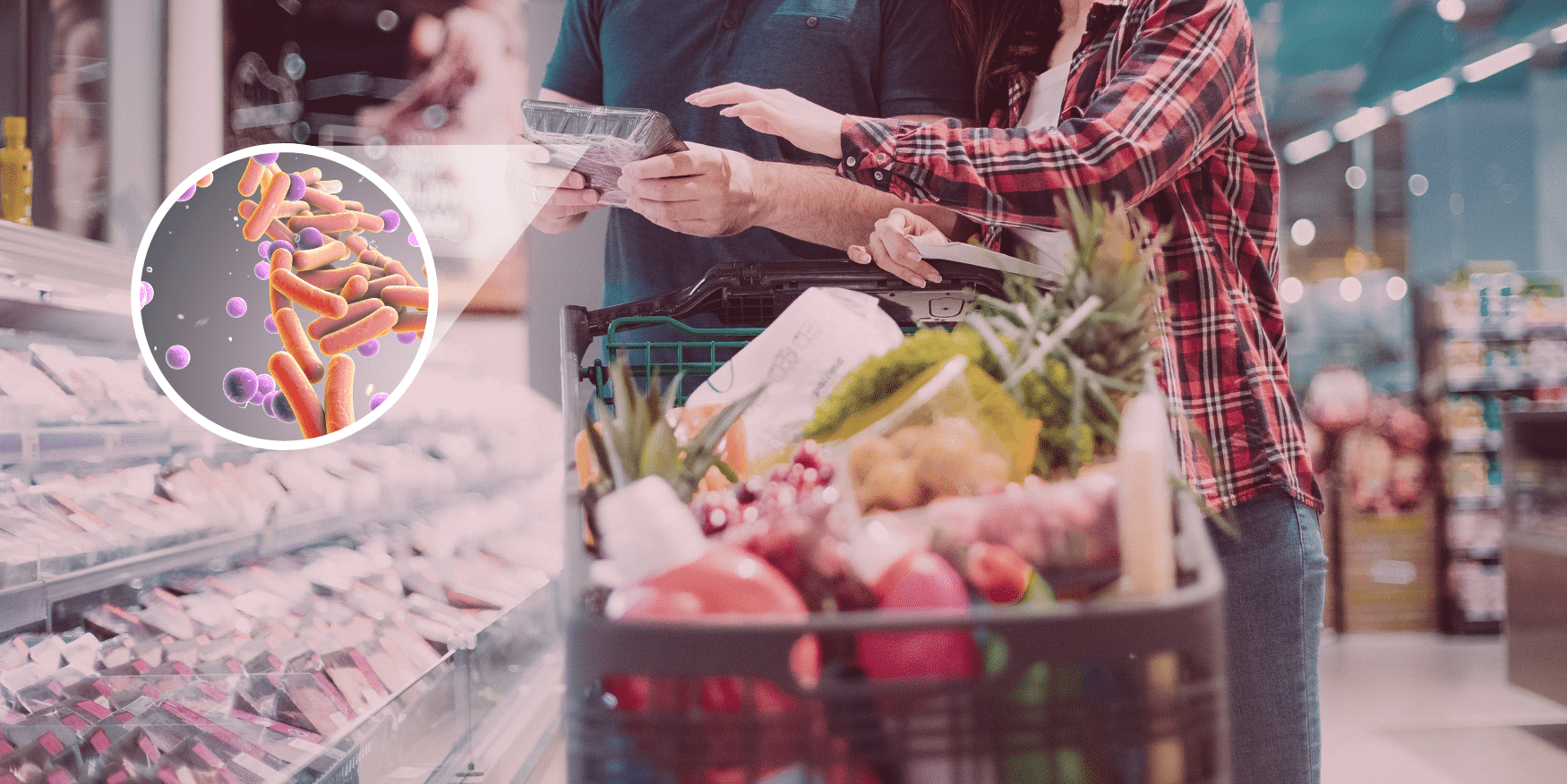
Dangerous Food Bacteria Are Here To Stay
It seems that dangerous bacteria are going to be a problem in our food supply for a long time. Microbes already present in North America’s food supply are mutating into new, more resilient forms while new contaminants are arriving in imported products. The best way to protect yourself from becoming a victim of these sometimes deadly contaminants is by preparing and handling food with rigorous hygiene and sanitation procedures. Ideally contamination of foods should be prevented at the source, rather than relying on the consumer to beware of every morsel.
In a report from the US Institute of Food Technologists the authors write, “Foodborne disease is widely recognized for acute effects on the gastrointestinal tract but also includes other effects throughout the body.”
Although cooking foods thoroughly kills most foodborne contaminants, eating foods raw, even when they have been washed, increases the risk of exposure to potentially deadly bacteria. As it is also common for people in North America to eat away from home, many people are leaving their health safety up to unknown food handlers.
In the report, scientists also say that the increasing use of manure as fertilizer poses increasing risks of spreading harmful bacteria to food, either by contaminating irrigation water or coming into direct contact with crops. Manure, which harbors bacteria such as the E. coli strain 0157:H7 and salmonella, substitutes for chemical fertilizer on both organic and conventional crops. Salmonella food poisoning causes diarrhea, vomiting, fever, and can sometimes be fatal.
The toxin produced by E. coli strain 0157:H7, is a “killer” protein that causes severe damage to intestinal epithelial cells (which line the wall of the intestine). Damage in the early stages is due to loss of water and salts, followed by blood vessel damage and hemorrhagic bleeding. The intensity of this toxin is especially harmful to small children, the elderly and those with already weakened immune systems. For these people, it is extremely important to stay hydrated. E. coli is often contracted from under-cooked meats, eggs, and even unwashed vegetables. If you have diarrhea accompanied by fever and vomiting, or if there is any blood in your stool, check immediately with your doctor. Identifying this different diarrhea in patients already experiencing diarrhea due to an existing digestive condition could prove to be very difficult, which puts inflammatory bowel disease (IBD) patients at greater risk of waiting until it is too late for treatment of an E. coli infection.
Where did the name “E. coli” originate?
Theodor Escherich was a German pediatrician and bacteriologist, who lived from 1857 – 1911. He devoted his efforts to improving childcare, particularly infant hygiene and nutrition. In 1886, after intensive laboratory investigations, Escherich published a monograph on the relationship of intestinal bacteria to the physiology of digestion in the infant. As a result of his extensive work in this field, he has had the following eponyms:
Escherichia – A genus of gram negative, rod-shaped, facultatively aerobic intestinal bacteria belonging to the family of Enterobacteriaceae, tribe Eschericheae.
Escherichia coli (E. coli) – A ubiquitous colon bacillus. Short, plump, gram-negative, non-spore forming motile bacilli almost constantly present in the alimentary canal of human and other animals.
Escherich’s reflex – Pursing or muscular contraction of lips resulting from irritation of lip mucosa.
As we demand fresh produce year-round, importing goods cannot be avoided. However stringent the controls in place in North America are for the food we grow, the same procedures may not be in place where the food we buy is grown. For example, the researchers point out that in some foreign countries, chicken manure is fed to farm-raised shrimp.
The report also warns against the overuse of antibiotics in livestock, saying that there is a “growing body of evidence” that farm usage of antibiotics is causing bacteria to become resistant to drugs.
The scientists say it will be “practically impossible” to keep hot dogs and similar precooked meats free of Listeria monocytongenes because the bacterium is common in the environment. It is therefore important to fully cook prepared products such as hot dogs before serving.
Changes in how foods are processed – such as leaving out salt or replacing fats with gums – can accidentally lead to new safety problems by making food more hospitable to bacteria; or by causing the bacteria to evolve into stronger forms.
At one point, yoghurt manufacturers started replacing sugar with an artificial sweetener only to discover that this change led to the growth of botulism bacteria. It turned out that the sugar was absorbing water from the yoghurt, making it difficult for the bacteria to grow. To eliminate this problem, sugar-free yoghurt has been reformulated.
Food makers also must be careful that their attempts to inhibit bacteria growth don’t backfire. For example, an anti-microbial ingredient or treatment that doesn’t kill the bacteria may cause them to develop into stronger forms.
The food industry is ever changing, with new commercial recipes being tried. Unfortunately, some new combinations may inadvertently expose us to potential health problems. Health Canada is continually examining food safety management in this country and more information can be found at their website.















